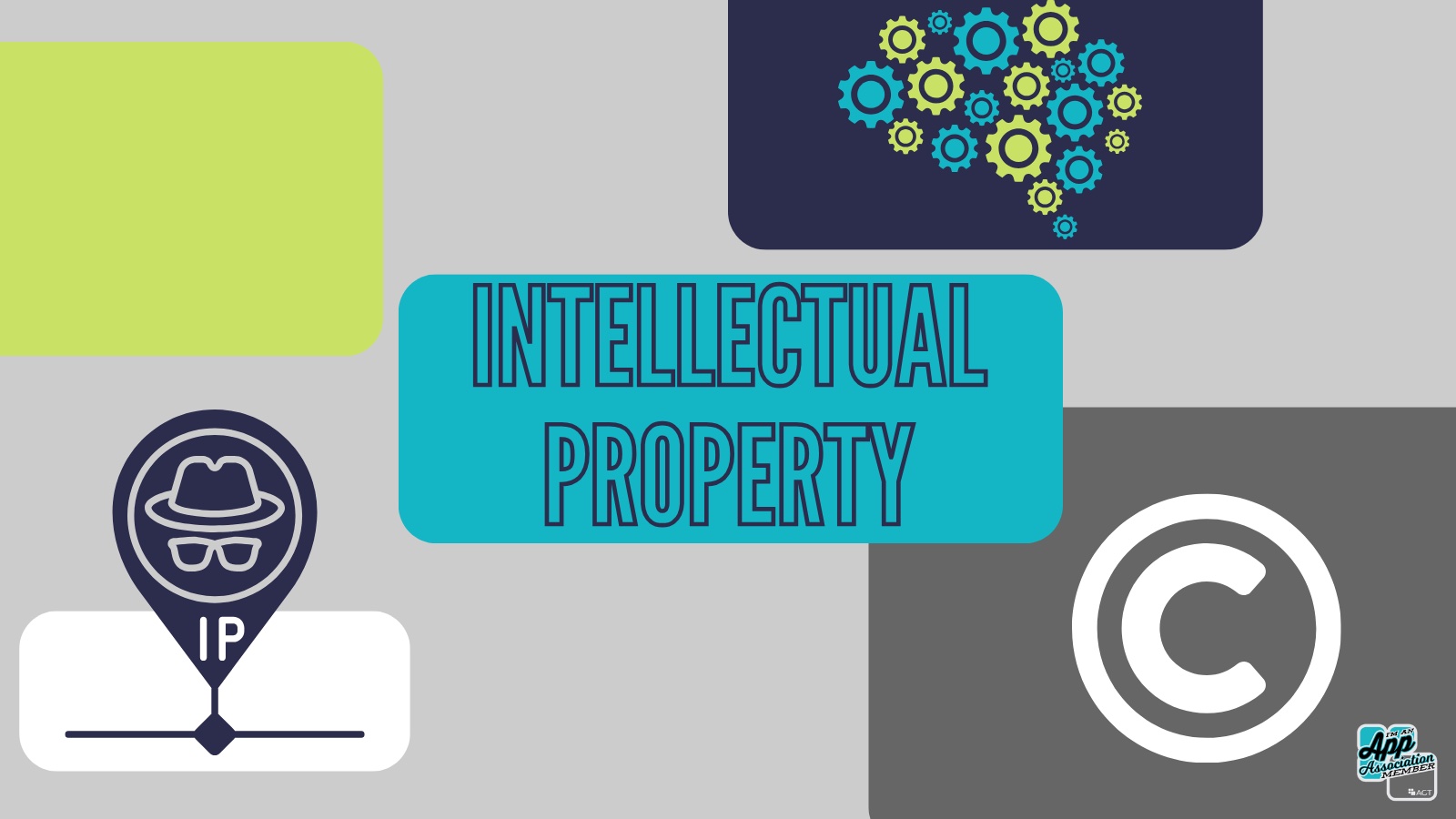On September 12, 2024, ACT | The App Association hosted its First Annual Patent Quality Week event, tackling one of the most critical topics in innovation today: the intersection of artificial intelligence (AI) and the evolution of the U.S. patent system. Attendees enjoyed a curated selection of wine and food and stimulating conversations among patent experts from both the public and private sectors. The discussions highlighted a mix of optimism and concern about AI’s growing influence on patent quality and its potential to disrupt existing systems.
Opening Remarks from Morgan Reed
Our event began with opening remarks by App Association President Morgan Reed, who framed AI as a pivotal force, encouraging the United States Patent and Trademark Office (USPTO) to reassess what it means to hold a “high-quality” patent. Morgan noted that today, we are seeing large language models (LLMs) enable patent applications to flood the USPTO’s patent examiners, making it easier for weak and potentially invalid patents to slip through the cracks. In turn, these flawed patents are later enforced, often by foreign or non-practicing entities (or both), against U.S. innovators.
Morgan then welcomed Charles Kim, Deputy Commissioner for Patents at the USPTO. Commissioner Kim outlined how the agency plans to address the challenges posed by modern AI while leveraging its benefits to protect the U.S. patent system. He explained that the USPTO has been aligning its efforts with the Biden Administration’s Executive Order on the Safe, Secure, and Trustworthy Development and Use of Artificial Intelligence. Commissioner Kim also highlighted key areas like inventorship, subject matter eligibility, and prior art disclosures that have been impacted by AI, noting that the USPTO has released its Inventorship Guidance for AI-Assisted Inventions. This guidance rightly focuses on human contributions to the patenting process, not just the extent of AI involvement. The App Association has actively participated in and appreciates the consultations that USPTO continues to hold in relation to modern AI (see our responses here and here).
Panel Discussion: Defining AI and Its Effect on the Patent Process
The program led to an engaging discussion by leading experts on patent quality issues that both precede and post-date concerns around modern AI. The esteemed panel was moderated by Priya Nair, Senior Intellectual Property Policy Counsel at the App Association, and included Alex Moss, Executive Director of the Public Interest Patent Law Institute; Jonathan Stroud, General Counsel of Unified Patents; Laura Sheridan, Head of Patent Policy at Google; and Matthew H. Horton, Senior Counsel at Foley & Lardner LLP.
The panelists first tackled the difficulty of defining artificial intelligence, acknowledging that the term covers a broad range of technologies with diverse capabilities and functions, including machine learning (ML), artificial general intelligence (AGI), and reactive AI. Establishing clear definitions for AI and its various components is crucial before determining how it integrates into the U.S. patent landscape.
The discussion then turned to inventorship and AI when panelists were asked if this issue had been resolved or if there was cause for Congress or the USPTO to address the matter. Alex explained that the courts had addressed this issue in Thaler v. Vidal, where the Federal Circuit explained that an invention entirely developed by AI cannot name the AI as the inventor — there must be human involvement. Following that ruling, the USPTO subsequently incorporated the Thaler decision into its inventorship guidance. Jonathan emphasized that the USPTO should also consider the various ways that patent applications may use AI tools to support the patent process. This activity could be preparing claim charts and specifications for their invention. Jonathan asked, in this case, “Should there be a disclosure of these tools?” He cautioned that the issue of inventorship should not act as a smoke screen to these pressing issues.
Alex and Matthew went on to explain that examining the introduction of AI in the U.S. patent system could obscure existing issues that persist within its landscape, which, in turn, will be aggravated by modern AI tools. For example, the USPTO is still grappling with concerns around the scope of issuable patents, including subject matter eligibility, the written description of the invention, and conditions for patentability. Jonathan clarified that Congress must consider whether the bills before them would broaden the scope of patentable claims beyond congressional intent to allow them to be easily asserted against U.S. inventors by opportunistic entities. The bills before Congress that elicit this concern, if passed, are the Realizing Engineering, Science, and Technology Opportunities by Restoring Exclusive (RESTORE) Patents Rights Act, the Patent Eligibility Restoration Act (PERA), and the Promoting and Respecting Economically Vital American Innovation Leadership (PREVAIL) Act.
While AI tools may exacerbate existing patent quality challenges, they also offer opportunities to strengthen the system, particularly when used by patent examiners at the USPTO to combat bad patents. Laura detailed how AI can be used effectively in technical training for patent examiners. AI can support examiners in various aspects of their procedure, including identifying prior art. Using AI internally at the USPTO pulls the weight off inventors, who may operate with minimal resources, to identify and disclose prior art. The panel concluded with the panelists’ hopes and aspirations for a high-quality U.S. patent system.
Future Outlook
The event concluded with a celebratory reception, marking the progress of patent quality in the United States and the importance of continued open dialogue between Congress, stakeholders, and the USPTO. The App Association is thrilled to create an annual event series that we hope to inspire important conversations and solutions around supporting a strong and reliable patent system for U.S. innovators. Please join us for our next Patent Quality Week 2024 event in October!
